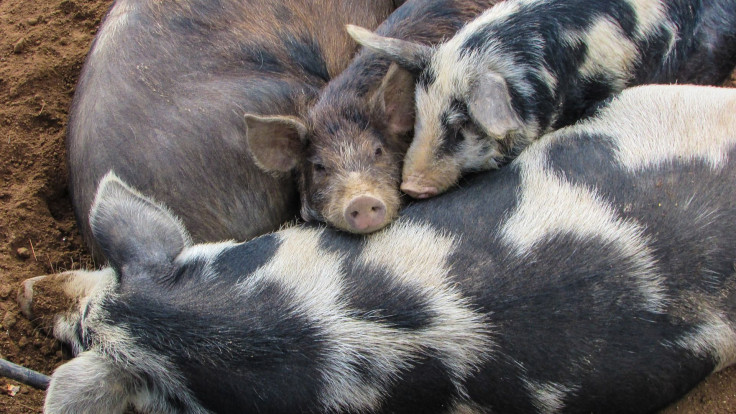Scientists Create Human-Pig Embryo, Explore Interspecies Organ Transplants

Using animal organs for human transplantation has long been reviled, although we've already used pig valves in heart transplants. But now researchers believe transplants could go beyond that with their latest creation of a mixed pig-human embryo.
Known as Chimera, or animals made of two sets of DNA, scientists at Salk University implanted a pig embryo injected with human cells back into the animal. Pigs were chosen as the host animal as their organs are most comparable to humans.
Read: Organ Donation And Transplants Save More Than 2 Million Years Of Life: Are You A Donor?
After about a month, 186 embryos survived of the 2,075 that had been used. The success rate is small, but scientists are encouraged by this advancement as nothing like this has previously been seen.
"This is the first time that human cells are seen growing inside a large animal," said Salk Institute Professor Juan Carlos Izpisua Belmonte to BBC News. There is, of course, a long way to go before animals will be able to grow full human organs that are viable for transplantation.
In a related experiment, another team of Salk Institute researchers engineered mice without pancreases. Rat stem cells were injected into mouse embryos and implanted back into mice, resulting in normal, developed embryos. Of course the one difference was that the mice were now growing rat pancreases.
Jun Wu, Salk researcher and study author, thinks the research shows the potential for human organs to be developed inside of animals. “Each mouse was healthy and had a normal lifespan, which indicated that the development proceeded properly,” he said in a press release.
Read: Diabetes Cure Research 2017: Growing Organs In A Rodent For A Transplant
The demand for organs is high. According to the U.S. Department of Health & Human Services, there are more than 119,000 people waiting on the national organ transplant list. A new person is added every 10 minutes.
Outside of creating organs for human transplants, scientists believe this tactic could be used to test therapeutic drugs as well as study species evolution and diseases.
Despite the buzz elicited from this latest discovery, Chimera research has faced a lot of backlash. The National Institutes of Health currently has a ban of using public money to fund this controversial science, but proposed to reverse that decision last year. The announcement elicited furor from many, including Catholic Bishops in the United States.
See Also:
Scientists Create Pig Hearts That Survived Inside A Baboon For Nearly Three Years
Scientists Sequence Entire Pig Genome in Breakthrough That Could Combat Human Disease



























